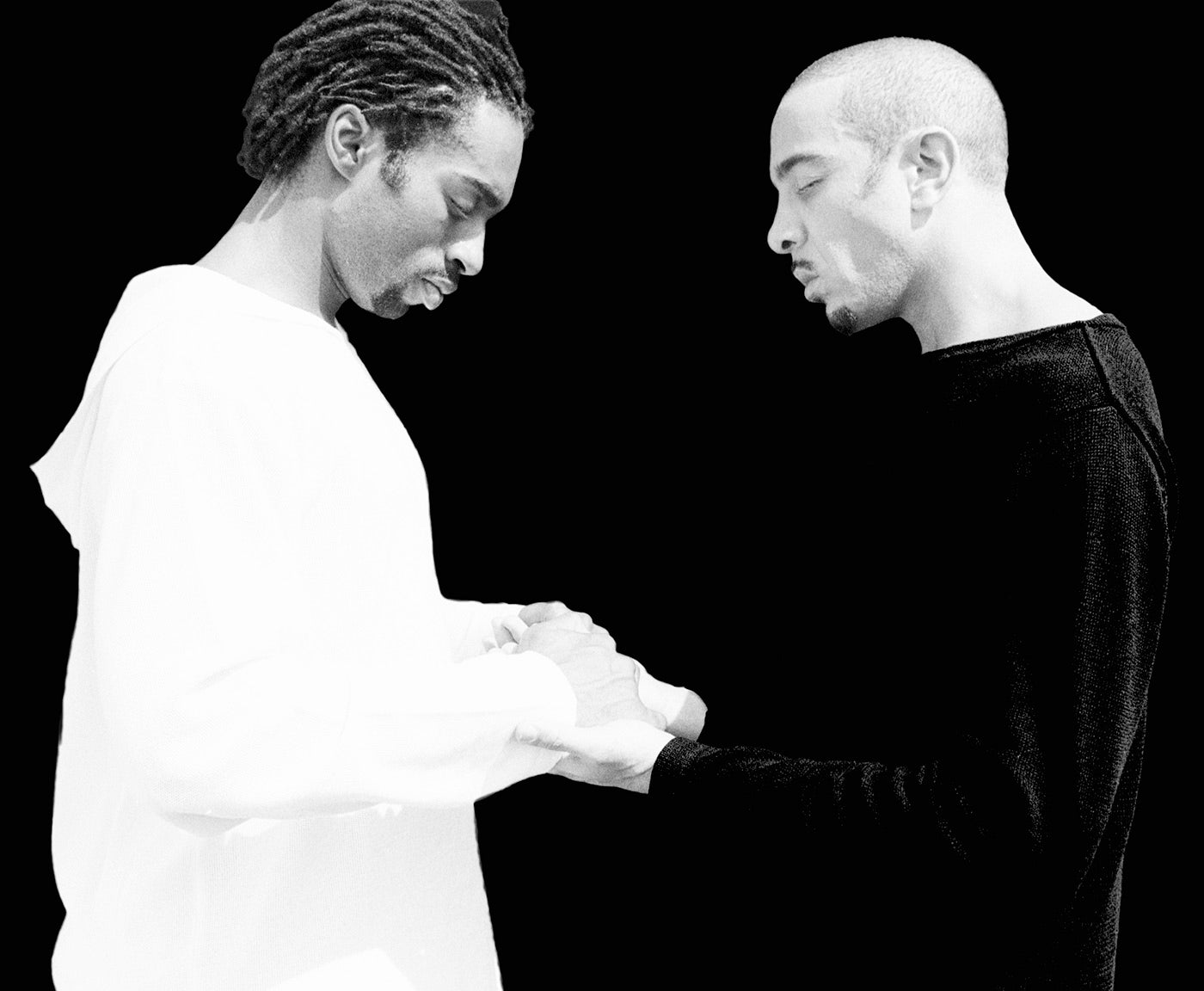How would you describe your creative partnership?
Desmond: Respect, I think that’s one thing. Loyalty. I’m loyal to a fault. I really respect Dwight’s work. I respect how he communicates to me, [and] what he has to say is very, very important. We’ve always had that. It’s not something we question. If we disagree, we go to our corners, figure it out, come back together; that’s a common thread. Listening to one another, communicating, as well. He’s family, a friend who goes beyond the dancing art. We gravitated towards each other as humans first, then as dancers.
Dwight: Desmond was inspiration. I had never met anyone like him. I wanted to create, and luckily, he was open and wanted to be a part of whatever I was doing. I was still dancing full-time, and we found each other in the dancing. First, we have a friendship; we would stay on the phone all night long, [though] we were mainly talking about dance. We were two young guys who were just in love with what we were doing. “Wow,” I’d think, “this is the kind of dancer I’d like to be.”
And second—Desmond couldn’t wait to dance. For me, that was thrilling, and it also lends itself to me being able to work with him and start to build a vocabulary. I’m grateful for that. We don’t agree on everything, like he said, but at the end of the day, we always come back to Complexions. Complexions is the love child. It’s the thing we made together and now it’s flourishing 30 years later.
A 30th anniversary is sometimes signified by a pearl, which brings me to this question: What’s the secret to keeping a company together for nearly three decades, which seems monumental, especially these days?
Desmond: It just stems from Dwight and I having a particular passion about dance, having a through-line. Let’s do something for real—not that the dance isn’t for real—but staying the course in what we believe in. How we see the dance. Yes, we want it technical, yes, we want it passionate. And entertaining—we’re not afraid to be that. We want audiences to sit forward in their seats. There’s something really palpable from Complexions to our audiences around the world.
They’re the same in New York, the same in L.A., or France or Italy, or any of the other places we visit. There’s something that’s coming off the stage that is a particular authenticity. We want to maintain that and not go to another place; that’s important for us. It’s in line with our original idea—putting it all on the stage—all or nothing—every eye, every head—giving 110% at all times.
The dancers are also unique, necessary and valid, and there’s a lane for them, as it was told to me, told to Dwight—we’ve put together very interesting dancers today. From non-binary, they’re being authentically themselves, and this is important, because they’re needing to voice who they are authentically, and not fit into a mold. If you hone your technique, have a finely-tuned instrument, you can do whatever you need to do.
Dwight: I don’t know what the secret is. All I know is it’s the hardest thing I’ve ever done in my life. We make it by the hair on my chinny chin chin and somehow get it done. All the noise and all the other stuff along the way, it can be easy to get distracted. But I’ve always been a person who likes to talk about what’s going on in the world now. I’m a ‘now’ guy as opposed to ‘then.’
It’s [also] an investment. The thing with Complexions, and it’s the very reason that Desmond and I wanted to put together a project—that’s what it was, a project, it wasn’t a company at the time—we wanted to explore, and we really thought that there’s a beauty in knowing something. I say this all the time—the beauty of the fact that someone sitting next to me comes from a completely different background, they may have training I don’t know anything about—how they were raised and what they bring to the table.
The beauty of the differences extends past racial lines. That’s a big part, yes, we wanted a multi-cultural [troupe]—but at the foundation is the beauty of appreciating our differences. The world would be such a boring place if we had come from the same place, had the same experiences. What sense does it make to have friction as opposed to, “Hey, tell me about you. I want to know.” That’s a point that people don’t embrace all the time. But we’re getting there.
